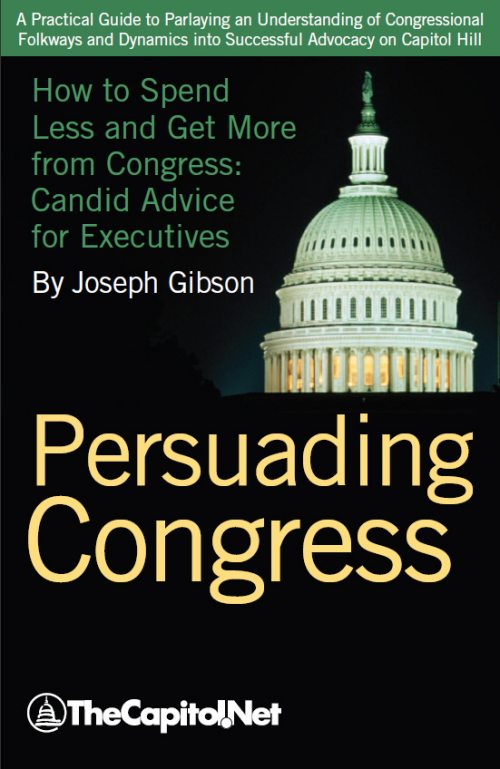It’s no secret that the key to gaining support for an issue in Washington is to gather as many allies as possible and then translate those allies to critical votes. Congress responds to pressure, so the more people and groups you have as allies, the greater chance you have to achieve your goals.

When you begin with a new issue, you want to work with others who share your interest on that particular issue. Determining who is directly affected by the issue will give you an understanding of who your allies might be. Although it might seem obvious who your allies might be, this is not always the case –there can be potential allies that are less obvious.
 Once you have identified potential allies, the next step is to get in touch with them and work towards enlisting their assistance in your cause. In many instances these potential allies may not be aware of your existence or of your issue. Lobbyists, whose job is to study every move made by Congress, can not stay on top of everything. Do not make the mistake of assuming that potential allies know about you and your issue–it is up to you to get the word out.
Once you have identified potential allies, the next step is to get in touch with them and work towards enlisting their assistance in your cause. In many instances these potential allies may not be aware of your existence or of your issue. Lobbyists, whose job is to study every move made by Congress, can not stay on top of everything. Do not make the mistake of assuming that potential allies know about you and your issue–it is up to you to get the word out.
You also want to learn whether your prospective allies are willing to contribute resources to supporting you. It is common for people to say they have an interest in an issue but in the end they do not believe it is important enough for them to spend money or time on it. This can be a problem with organizations and companies when they feel an issue is not especially urgent or if they feel that nothing will be done about it in the near future. You can avoid this type of problem by approaching someone directly affected by the issue in the company or organization your want involved.
After you have compiled a list of people who are willing to work on the issue, get them together and develop a plan. Make sure everyone contributes something by assigning tasks and placing someone in charge of assuring those tasks are carried out.
Reference: Persuading Congress, by Joseph Gibson, Ch. 29 Allies
Also see
- “What’s the deal with contacting my Representative or Senators?“
- Our FAQ: “How to Contact Congress”
- How do I get an American flag that has flown over the U.S. Capitol?
- A Guide for Communicating with Congress
Courses
- Congressional Operations Briefing – Capitol Hill Workshop
- Congressional Dynamics and the Legislative Process
- Drafting Federal Legislation and Amendments
- Understanding Congressional Budgeting and Appropriations
- Advanced Legislative Procedure
Publications
CongressionalGlossary.com, from TheCapitol.Net
For more than 40 years, TheCapitol.Net and its predecessor, Congressional Quarterly Executive Conferences, have been teaching professionals from government, military, business, and NGOs about the dynamics and operations of the legislative and executive branches and how to work with them.
Our custom on-site and online training, publications, and audio courses include congressional operations, legislative and budget process, communication and advocacy, media and public relations, testifying before Congress, research skills, legislative drafting, critical thinking and writing, and more.
TheCapitol.Net is on the GSA Schedule, MAS, for custom on-site and online training. GSA Contract GS02F0192X
TheCapitol.Net is now owned by the Sunwater Institute.
Teaching how Washington and Congress work ™

